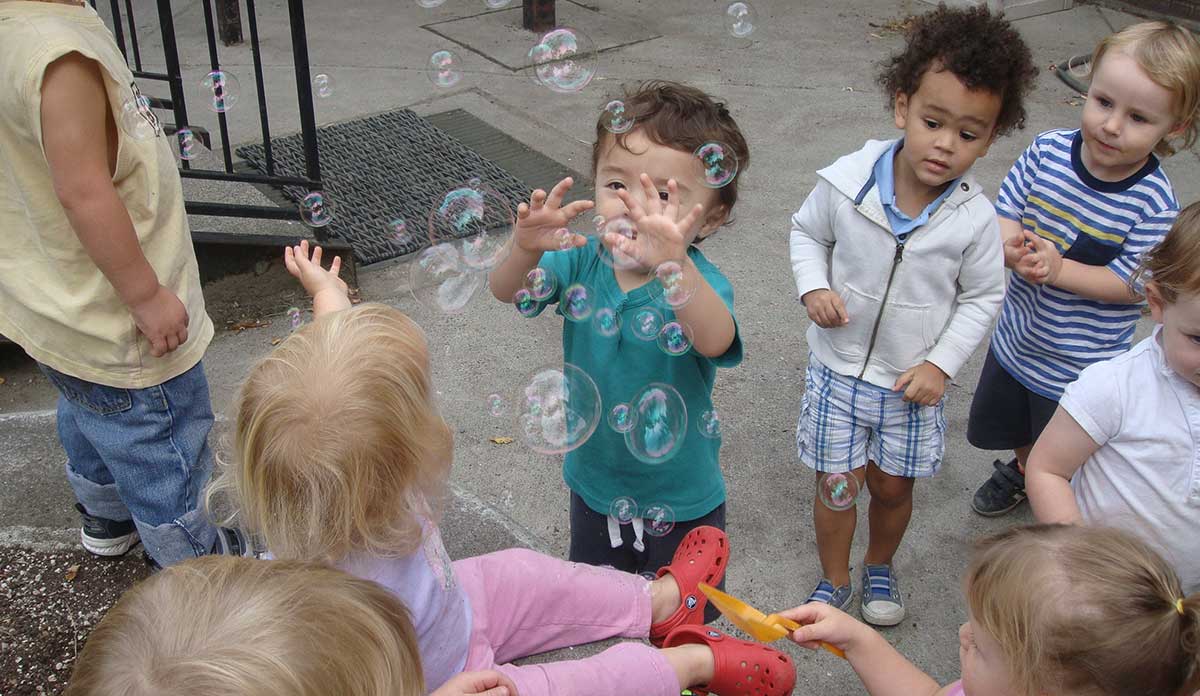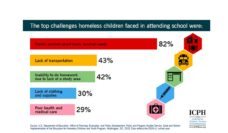America is facing a child care crisis: far too many families cannot access quality care for their children. This crisis is growing out of a combination of soaring needs and soaring costs. In 2011, 32.7 million children were cared for regularly by someone other than a parent or guardian, such as relatives, home-based daycare providers, and daycare center staff. The majority of American children need child care, as 60% of all households with children and 65% of households with children under age 6 have no stay-at-home parent to provide child care.
Simultaneously, average child care costs increased by 70% between 1985 and 2011. While child care costs rose for everyone, the proportion of family income spent on child care has increased drastically for low-income Americans, reaching 30% of income for those below the federal poverty line and more than 50% of income for the poorest working families, as compared to 8% of income for middle class families. Illustrated another way: yearly child care costs now exceed the cost of in-state college tuition in the majority of US states.
The need and cost components of child care are further complicated by the issue of care quality. High quality care typically comes at high cost, and when that cost is a barrier to access, quality may be the only possible compromise. Unlike the need for care, which cannot be easily adjusted, or the cost of care, which families cannot change, quality is the component of child care on which families may have to compromise.
Resolving the child care crisis may produce long-term economic gain for the country.
Quality is the facet of child care most challenging to quantify and most illuminated by public health research. High quality child care has numerous cognitive and socio-emotional benefits for children while low quality child care can be detrimental to children’s development. However, we are only beginning to establish how to define, measure, and increase quality in child care.
Nevertheless, insights into quality are critical to solving the child care crisis. The successful extension of high-quality child care to more families would offer significant benefits to children, families, and the nation as a whole. Children gain from participating in high-quality care in the short and long-term, as demonstrated by improved cognitive and social outcomes, better academic performance through school, and better health, employment outcomes, and criminal justice involvement reduction as adults.
Resolving the child care crisis may produce long-term economic gain for the country. For instance, the Obama administration and others assert investment in high-quality early childhood care and education “generate[s] economic returns of over $8 for every $1 spent.” The economic benefits of reducing “motherhood penalties” (income lost to parenting), increasing women’s workforce participation, and boosting working families’ take-home pay are well established.
The child care crisis impacts many families, but poor families face the most significant access and cost barriers to high quality child care, putting their children at risk for the detrimental effects of low quality care and missing out on the beneficial effects of high quality care. Poor families will choose high quality care if access and cost barriers are removed.
The outline of a strong child care policy agenda to address the current crisis is simple: policy should be aimed at increasing the supply of high quality child care providers and extending stronger quality-linked child care subsidies to poor and working class families. Children’s enrollment in high-quality child care benefits everyone, and concrete policy proposals have been described, such as expanding existing child care subsidies or introducing a new quality-linked child care tax credit. If we act on such proposals, children’s lives will improve, parents’ employment will stabilize, and the national economy will benefit.
Featured Image: Parker Knight, Ali Knight Starfish 17, used under CC BY Attribution 2.0













